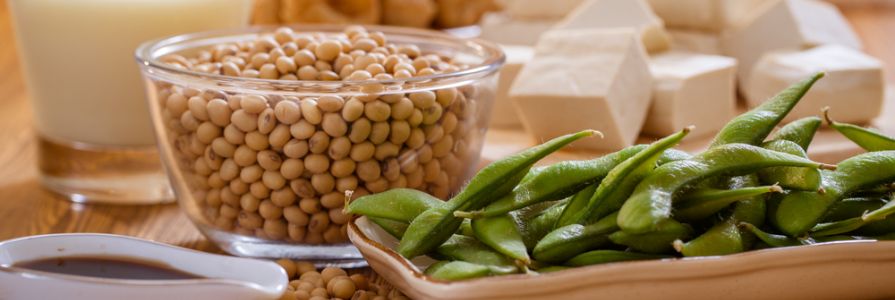The jury is still out on whether eating soy foods can prevent breast and prostate cancers, but the research is encouraging, particularly for women.
Q: Can soy foods prevent breast or prostate cancer?
A: The jury is still out on that one, but the research is promising, particularly for women. Soy foods contain compounds called phytoestrogens, which are akin to very weak forms of estrogen. When eaten in foods (as opposed to supplements), the anti-cancer results are subtle, but still potentially significant. Phytoestrogens can bind to estrogen receptors in the breasts and other tissue and in some ways provide a kinder, gentler substitute for natural, ovary-produced estrogen. Since high lifetime exposure to estrogen is a risk factor for breast cancer, some scientists hypothesize that phytoestrogens protect against cancer growth by blocking natural estrogen and reducing total exposure to the hormone. In Asian women, who consume far more soy than American women do, a diet rich in soy foods has been linked to a lower risk of breast cancer and cancer recurrence. Current research indicates that soy may offer more cancer protection when it’s consumed earlier in life, during childhood and teen years. In men, phytoestrogens also act as estrogens — again, subtly — which may balance out testosterone levels. By altering levels of sex hormones, a diet rich in phytoestrogens may protect against prostate cancer, another hormone-dependent cancer.
In terms of benefits for prostate health, the research is mixed. Some studies have shown that men who consume high-soy diets are less likely to develop prostate cancer, while other studies have shown no advantage. I do not recommend that men or women take soy, phytoestrogens, or isoflavones (a class of phytoestrogens) in supplemental form, since their effects are not fully understood. If you would like to add soy to your diet, skip supplements and highly processed soy foods. Instead try high-quality, whole soy foods such as soybeans (edamame), tofu, tempeh, or soy milk. One caveat: If you are being treated for or have a history of breast cancer, speak with your doctor before incorporating soy foods into your diet. In many instances, consuming moderate amounts of whole soy foods is perfectly fine, but your doctor may advise you differently based on your personal medical history and treatment plan.
Discover 7 Ways you Can Lower Your Cancer Risk.
Learn more about How Food Affects Cancer.






